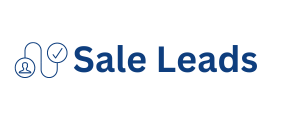Singapore WhatsApp Numbers Data Marketing: A Strategic Approach
In the fast-paced world of digital marketing, leveraging emerging platforms is crucial for staying ahead of the competition. One such platform that has gained significant traction is WhatsApp. With its widespread use in Singapore, WhatsApp presents a powerful tool for businesses looking to enhance their marketing strategies. This article delves into the benefits, strategies, and best practices for using WhatsApp numbers data in marketing within the Singaporean market.
The Growing Popularity of WhatsApp in Singapore
WhatsApp has become a staple in the communication landscape of Singapore, with over 4 million active users in the country. The app’s popularity is driven by its ease of use, real-time messaging capabilities, and multimedia features. Unlike traditional communication channels, WhatsApp offers a more direct and personal way for businesses to interact with their audience, making it an attractive option for marketers.
Benefits of WhatsApp Numbers Data Marketing in Singapore
Direct Communication Channel: WhatsApp provides a direct line of communication between businesses and customers. Messages sent Singapore WhatsApp Number Data via WhatsApp are typically read within minutes, ensuring that important updates, promotions, or customer service inquiries are promptly addressed.
High Engagement Rates:
WhatsApp boasts impressive engagement statistics. Messages sent through the app have significantly higher open and response rates compared to email or SMS marketing. This high engagement translates to better visibility and interaction with your target audience.
Rich Media Capabilities: WhatsApp supports a variety of media formats, including text, images, videos, and voice messages. This versatility allows businesses to create more engaging and visually appealing marketing content, enhancing the overall customer experience.
Cost Efficiency: Compared to traditional advertising methods, WhatsApp marketing is cost-effective. The platform offers a low-cost alternative to reach a broad audience, with no additional charges for sending messages or multimedia content.
Effective Strategies for WhatsApp Numbers Data Marketing in Singapore
Build an Opt-In Contact List: The first step in leveraging WhatsApp for marketing is to build an opt-in contact list. Ensure that customers have willingly provided their WhatsApp numbers and have consented to receive marketing messages. This approach not only complies with privacy regulations but also fosters trust with your audience.
Segment Your Audience: Tailor your Cracking the Code Myth: Why You Can’t Get a Free … messages by segmenting your audience based on demographics, interests, or purchase history. Segmentation allows you to deliver personalized content that resonates with specific groups, increasing the likelihood of engagement and conversion.
Create Compelling Content:
Craft messages that are concise, relevant, and engaging. Use a mix of text, images, and videos to capture attention and convey your message effectively. Ensure that your content aligns with your brand voice and delivers value to the recipient.
Utilize WhatsApp Business Tools: The WhatsApp Business app offers various tools to enhance your marketing efforts. Features such as automated responses, quick replies, and labels can help streamline customer interactions and improve efficiency. For more advanced needs, consider using the WhatsApp Business API, which provides additional functionalities like bulk messaging and detailed analytics.
Monitor and Optimize Campaigns:
Regularly track the performance of B2B Fax Lead your WhatsApp marketing campaigns. Analyze metrics such as message open rates, response rates, and conversions to gauge the effectiveness of your strategy. Use these insights to refine your approach and optimize future campaigns.
Best Practices for WhatsApp Marketing in Singapore
Respect Privacy: Always prioritize customer privacy and adhere to data protection regulations. Ensure that your messaging practices are compliant with relevant laws, such as the Personal Data Protection Act (PDPA) in Singapore.


